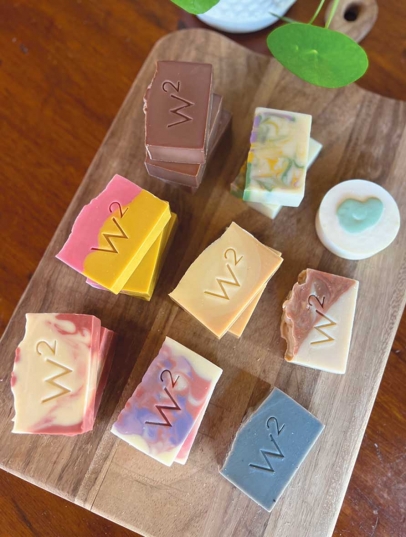Scrubbing Up with Honey and Spice
Shelagh Stone, whose “day job” is in health care, got interested in soap-making a few years ago while making candles. She found it to be more creative, and she kept the business name Watson Wax (Watson is the name of her golden retriever). Stone quickly discovered it was also more fun, experimenting with fragrance oils and essential oils, though she limits the latter due to scarcity of natural ingredients such as sandalwood (but not all fragrance oils withstand the heat needed to make the soap). She doesn’t use palm oils, but instead favors avocado, rice bran, organic extra-virgin olive and organic coconut oils, plus unrefined organic shea butter. She also uses natural coloring from clays, roots, charcoal and cocoa powder. Customer favorites include peony—”it isn’t overwhelmingly floral”; Tumeric + Honey using her sister’s honey; and several sea salt bars. Stone’s holiday suggestion is berry spice—”I like the berry and spicy seasonal scent.” After a saponification process turns the basic ingredients into solid soap, Stone cuts and cures it for four to six weeks. “The more you let it cure, the more water evaporates and you’re left with more oil, which makes the soap more gentle,” she says.
Order online at WatsonWax.com and find the soap at Coastal Growers Market at Casey Farm in Saunderstown from early May through late October.





